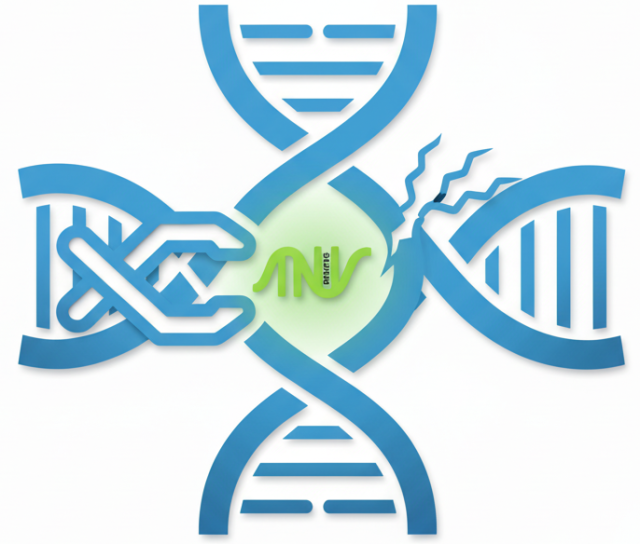GE Free Northland (in food & environment)
Media release 3 November 2025
Reckless Gene Tech Bill threatens Northland and Auckland's GM Free Food Producer Region
Northlanders concerned about the Gene Technology Bill plan to protest outside the office of Dr Shane Reti, Minister of Science and Technology, in Whangarei tomorrow (4 November).
This protest is in support of a Wellington rally happening on the same day.
"Whangarei is the heart of the Northland/Auckland "GE Free Food Producer Region". It's of huge concern that the MP for Whangarei MP supports this controversial Bill, despite the failure of the Health Select committee to respond meaningfully to our Northland councils' submissions, which oppose it.
Key concerns conveyed in the thousands of submissions from the farming and primary production sector have also been ignored" said Martin Robinson, spokesman for GE Free Northland.
The most recent draft of the Bill, released on 10 October, is only superficially changed, with little in the way of improvements.
“New Zealanders have a right to know what we’re growing and eating – and Northland has led the way in protecting its farmers against the risks of outdoor GE/GMOs," said Robinson.
“This Bill would still allow GE into our farms, gardens and food, risking widespread and irreversible contamination, loss of organic certification, loss of access to key markets and premiums, loss of our valuable "Northland, naturally" brand, and Aotearoa’s GE-free status," said Robinson.
GE Free Northland is calling for the Government to halt the Bill, warning that the proposed law would not only open the door to undesirable GE organisms in NZ's environment, food system, farms, forests, and conservation estate, but also destroy existing valuable GE-free food producer regions and districts.
In addition to other major weaknesses in the Bill, the proposal to strip local councils of their authority and jurisdiction regarding outdoor GE/GMO experiments, field trials, and releases in their region denies residents any right to protect their food supply and the environment.
The Northland and Auckland Region, along with the Hastings District, are currently established as GE-Free food producer zones that provide protection from outdoor GE/GMO experimentation including field trials.
The proposals to strip local councils of their authority and jurisdiction regarding GMO activities outlined in clauses 248 to 253 of the Gene Technology Bill* (1) are the latest attempt by the National-led government to destroy existing enforceable GE Free Zones.
There is strong opposition from these councils to the parts of the Bill that would remove existing district and regional regulations, thus reducing local participation in decision-making around outdoor GMOs. Clauses in the Bill seek to undermine many years of collaborative work done by Northland and Auckland's local authorities, to bring about a plan representing the values of their communities, and long-term sustainable integrated management to protect finite resources and biosecurity.
All councils, from South Auckland to Cape Reinga, have provisions, policies, and rules in their operative plans that ensure precaution and prohibition around outdoor GMOs. Kaipara District Council only recently proposed similar provisions (in alignment with what the other councils have already achieved), which was met with huge support from Kaipara farmers and residents.
GE Free Northland is grateful to the councils of Northern Peninsula for taking action to oppose the extreme proposals in the controversial Gene Technology Bill, and for participating in the Northland/ Auckland "Inter Council Working Party on GMO Risk Evaluation & Management Options" (*2) since its inception in 2003.

ENDS
Contact:
Martin Robinson
spokesperson GE Free Tai Tokerau
09 407 8650
Mobile: 027 347 8048
Zelka Linda Grammer
chairperson, GE Free Tai Tokerau
member, Rural Women NZ
Concerned Farmers NZ
email: linda.grammer@gmail.com
*(1)
The explanatory notes in the Gene Technology Bill state:
"Subpart 9—Amendments to Resource Management Act 1991 Clauses 246 to 254 amend the Resource Management Act 1991 (RMA). In particular, these clauses— • define genetically modified and Regulator (clause 247): • prohibit a regional council or territorial authority from performing its functions under sections 30 and 31 of the RMA in a manner that treats genetically modified organisms differently from other organisms, including in regional plans, district plans and regional rules (clauses 248 to 253)."
All councils from south Auckland to Cape Reinga in Far North/ Te Tai Tokerau have precautionary and prohibitive GE/GMO provisions, policies, and rules- set up in keeping with the wishes of local farmers and other ratepayers, in order to protect our regions biosecurity, wider environment, economy, and existing GM free farmers/ primary producers, including conventional, IPM, regenerative,and organic.
Hastings District Council has achieved outright prohibition of all outdoor GE/GMO experiments, field trials, and releases for the duration of the District Plan.
see
"Council and Iwi welcome GMO decision"
Hastings District Council Media Release 1 August 2018
https://www.hastingsdc.govt.nz/our-council/news/article/1038/council-and-iwi-welcome-gmo-decision
*(2)
Whangarei District Council "Genetic Engineering Review" webpage, detailing the good work of the Northland/ Auckland INTER COUNCIL WORKING PARTY ON GMO RISK EVALUATION & MANAGEMENT OPTIONS formed in 2003
https://www.wdc.govt.nz/Council/Council-documents/Reports/Genetic-Engineering-Review
"Three major reports commissioned by the working party have identified a range of risks involved with the trialling and release of GMOs. They also include approaches to managing those risks.
GMO Reports
Environmental risks
· GMOs becoming invasive and affecting other species including native flora and fauna
· the development of herbicide or pesticide resistance creating 'super-weeds' or 'super-pests'
· long term effects on ecosystem functioning.
Socio-cultural risks
· effects on Maori cultural beliefs of whakapapa, mauri, tikanga
· ethical concerns about mixing genes from different species including human genes
· concerns about the long term safety of genetically engineered food.
Economic risks
· loss of income through contamination (or perceived contamination) of non-GMO food products
· negative effects on marketing and branding opportunities such as 'clean and green' or 'naturally Northland'
· costs associated with environmental damage such as clean-up costs for invasive weeds or pests.
Associated with these risks are limited liability provisions under the Hazardous Substances and New Organisms (HSNO) Act 1996. "
ENDS
